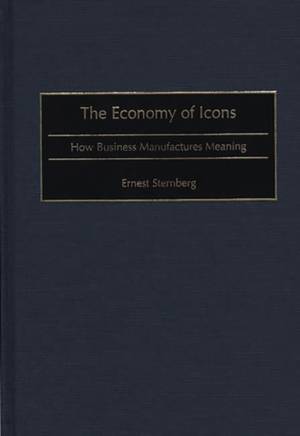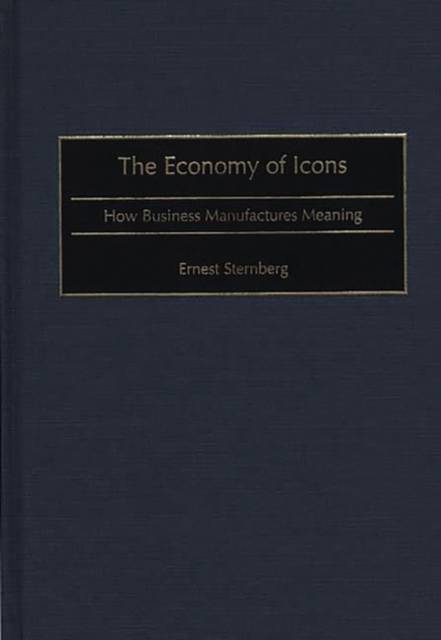
En raison d'une grêve chez bpost, votre commande pourrait être retardée. Vous avez besoin d’un livre rapidement ? Nos magasins vous accueillent à bras ouverts !
- Retrait gratuit dans votre magasin Club
- 7.000.000 titres dans notre catalogue
- Payer en toute sécurité
- Toujours un magasin près de chez vous
En raison de la grêve chez bpost, votre commande pourrait être retardée. Vous avez besoin d’un livre rapidement ? Nos magasins vous accueillent à bras ouverts !
- Retrait gratuit dans votre magasin Club
- 7.000.0000 titres dans notre catalogue
- Payer en toute sécurité
- Toujours un magasin près de chez vous
161,45 €
+ 322 points
Description
Though many still think that we live in an information economy, Ernest Sternberg asserts that the driving force in 21st-century capitalism is not information, but image. Through studies of food processing, real estate development, tourism, movies, and labor performances, he examines how businesses endow products with evocative meaning.
It has become common wisdom that we live in a postindustrial information society in which data and calculation underlie wealth. But now that information is as routinely produced as industrial or agricultural goods, businesses are discovering that they best achieve competitive advantage by producing what consumers most dearly seek--personal meaning. The 21st-century economy produces just that: not merely information, but evocative images; not just commodities, but meaning-laden icons. As Sternberg shows, foods now appeal through their sensuality and nostalgia; houses and stores draw customers through their exoticism; people sell their labor through the deliberate performance of the self for the market; and tourist destinations offer up carefully crafted thematic experiences. Whereas farms, factories, and information processors once stood at the core of the economy, now movie studios do, producing the product valued above all, meaningful content, from which downstream firms acquire the themes that animate desire. Now that meaning pervades production, Sternberg argues, modes of inquiry once reserved for the humanities make sense in the study of the economy. Drawing on art history and aesthetics, he introduces iconography as a mode of cultural analysis adapted to the study of commercial production. Through comparative studies of diverse economic sectors, ranging from food processing to tourism, Sternberg carries out an iconographic analysis of the new economy. This is a provocative study for scholars, students, and professionals dealing with marketing and consumer research, culture and media studies, socio-economics, and economic geography.Spécifications
Parties prenantes
- Auteur(s) :
- Editeur:
Contenu
- Nombre de pages :
- 192
- Langue:
- Anglais
Caractéristiques
- EAN:
- 9780275966416
- Date de parution :
- 30-09-99
- Format:
- Livre relié
- Format numérique:
- Genaaid
- Dimensions :
- 164 mm x 243 mm
- Poids :
- 399 g

Les avis
Nous publions uniquement les avis qui respectent les conditions requises. Consultez nos conditions pour les avis.






